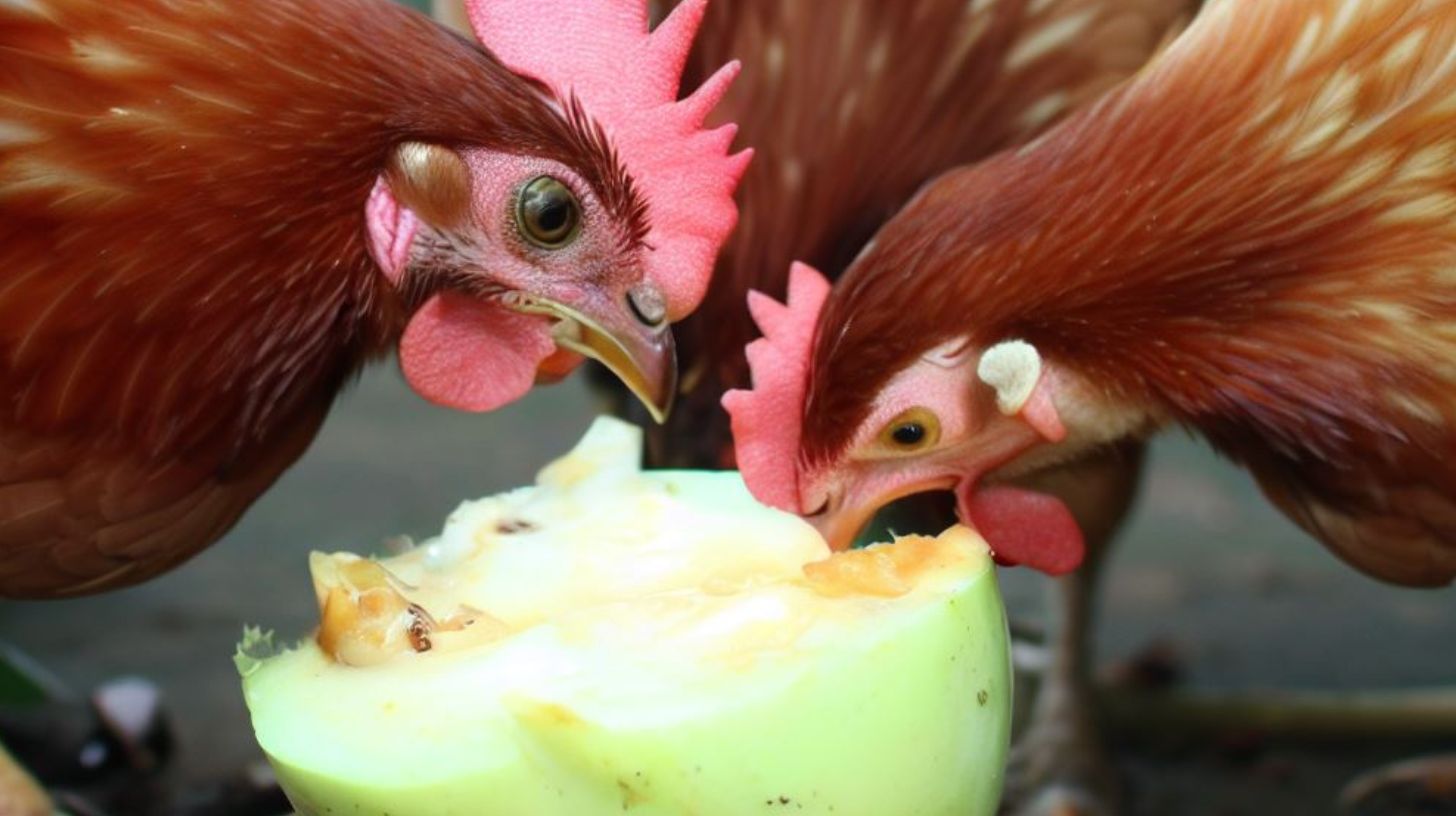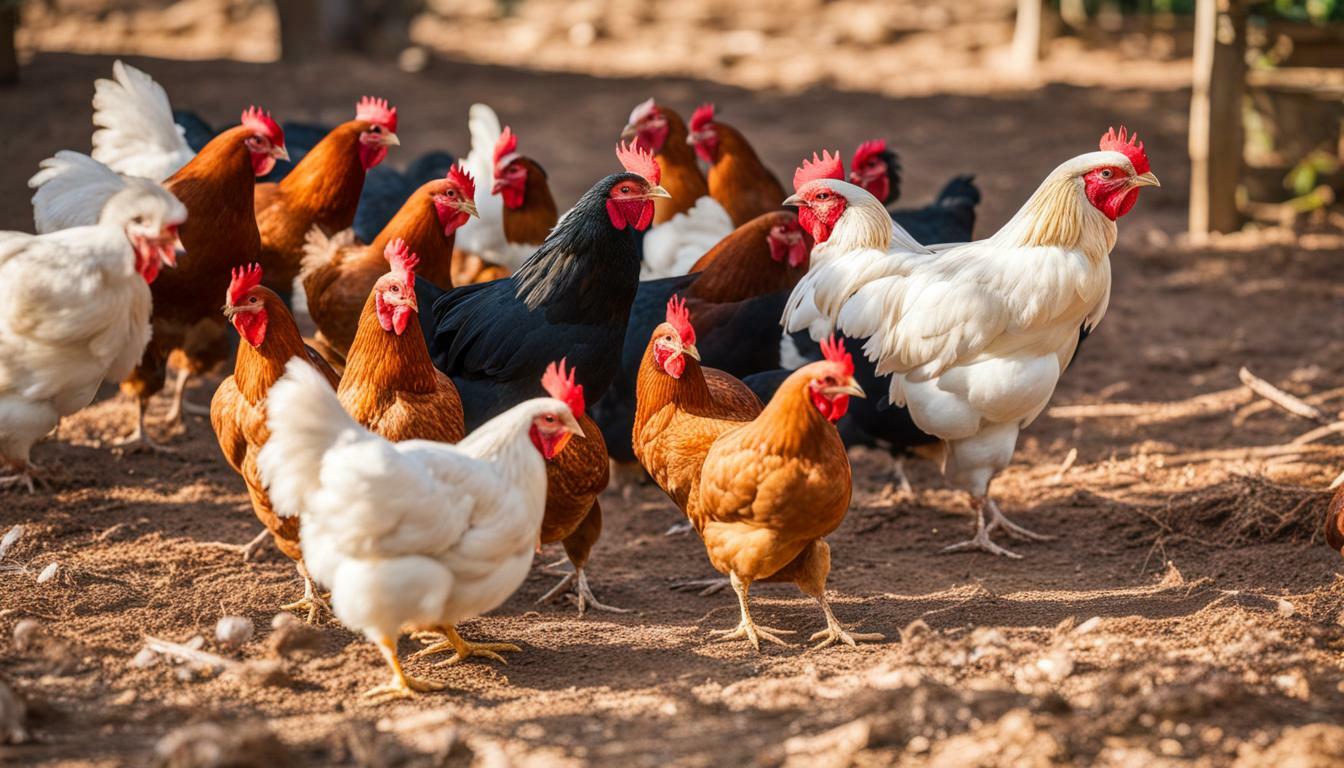Can Chickens Eat Hornworms? Discover the Answer Today!

Table of content:
- Are Hornworms Good for Chickens?
- What Do Hornworms Eat?
- Are Hornworms Harmful to Chickens?
- How Do I Feed Hornworms to Chickens?
- Do Chickens Like Eating Hornworms?
- What Plants Attract Hornworms?
- How Do I Catch Hornworms to Feed Chickens?
- Should I Let Chickens Free Range to Eat Hornworms?
- Do Hornworms Bite Chickens?
- Are There Other Caterpillars Chickens Can Eat?
- Final Thoughts
Hornworms are a common garden pest that can do extensive damage to tomato, tobacco, and other plants in the nightshade or solanaceae family. But did you know that chickens absolutely love eating these juicy caterpillars? Hornworms can provide great nutrition for your flock and allow chickens to exhibit natural foraging behaviors.
Are Hornworms Good for Chickens?
Hornworms contain high levels of protein and provide an excellent source of many important amino acids, vitamins, and minerals that support your chickens’ health. The fatty acids in hornworms also make them a more energy-dense food source.
Here are some of the benefits of feeding hornworms to chickens:
- Promotes weight gain and growth in chicks
- Improves egg production and egg quality
- Provides nutrients for feather growth during molting
- Increases yolk color from compounds like lutein
- Boosts energy and activity levels
- Supports bone strength with calcium and phosphorus
- Encourages natural foraging behaviors
Overall, hornworms are a nutritious supplement to a balanced diet and are excellent for keeping chickens active.
What Do Hornworms Eat?
Hornworms are the larval form of the hawkmoth or spinx moth. The most common species are the tobacco hornworm and tomato hornworm which feed on plants in the nightshade family including tomatoes, potatoes, eggplants, peppers and tobacco.
Larvae hatch from eggs laid on the undersides of leaves and immediately start feeding on the foliage. A single hornworm can consume significant amounts of leaves very quickly. They have voracious appetites and do extensive damage to garden plants if left uncontrolled.
Are Hornworms Harmful to Chickens?
Hornworms obtained directly from your garden are usually safe for chickens when fed in moderation. However, there are a few risks to consider:
- Pesticide exposure – Only feed hornworms from untreated plants
- Overfeeding – Too many may cause digestive upset or diarrhea
- Can be high in oxalates – Moderate quantities recommended
- May carry pathogens if wild caught – Wash thoroughly
Avoid feeding hornworms that are diseased or parasitized. Monitor your flock’s droppings and behavior when introducing new treats. Discontinue use if any signs of illness develop.
Overall, hornworms are safe for chickens when fed responsibly. The benefits often outweigh the minimal risks.
How Do I Feed Hornworms to Chickens?
The best way to feed hornworms is fresh from the garden. Hand pick larvae off infested plants and rinse them off. Make sure the plants have not been treated with insecticides.
Chop the hornworms into bite-sized pieces for small chickens. Older birds can eat them whole. Drop pieces directly into the pen or toss them in foraging areas to allow natural hunting behaviors.
You can also collect hornworms in a container and crush or grind them to create a soft mash to mix with feed. This allows uniform intake and prevents selective feeding.
For convenient feeding, you can dehydrate or freeze hornworms for long-term storage. Thaw frozen hornworms before feeding. Rehydrate dried larvae by soaking.
Start slowly with a few hornworms at a time to gauge acceptance and digestive effects. Observe your flock closely and adjust quantities based on their reactions.
Do Chickens Like Eating Hornworms?
Chickens absolutely relish eating juicy, meaty hornworms! Their strong natural foraging instincts drive them to scratch and peck for these tasty morsels.
The wriggling motion and bright colors of live hornworms strongly attract chickens. Hornworms are naturally packed with moisture which chickens crave. Their soft bodies are easy for chickens to consume compared to hard-shelled beetles.
Tossing whole hornworms into the run encourages natural hunting behaviors. Chickens will excitedly chase down larvae and compete for them, pecking with gusto. You’ll likely see a chicken snatch one up and frantically gulp it down before the others catch on!
Consider hornworms like candy for chickens – they can’t resist these sweet, succulent treats! Just be sure not to overfeed.
What Plants Attract Hornworms?
The most common host plants for tomato and tobacco hornworms include:
- Tomatoes
- Potatoes
- Eggplants
- Peppers – chili, bell, etc.
- Tobacco
- Moonflower
- Petunia
- Datura
- Tomatillo
Basically any plant in the nightshade or solanaceae family can become a target. Hornworm eggs are tiny and difficult to spot, so inspect Undersides of leaves regularly for signs of chewing damage.
Focus on tomato plants – tomatoes are a hornworm favorite. Also check eggplants and potatoes. Planting these will help draw hornworms away from more valuable garden crops.
How Do I Catch Hornworms to Feed Chickens?
Catching plenty of hornworms to feed your flock is easy with these tips:
- Hand pick larvae from infested plants wearing gloves if desired
- Search under leaves – especially the undersides
- Look for signs of damage – chewed or missing foliage
- Focus on hotspots by fencing or netted plants
- Tap branches to disturb larvae for easier spotting
- Use a blacklight at night – larvae glow
- Attract hawkmoths with nectar plants to increase egg laying
- Rotate poultry through the garden – let them hunt!
- Cultivate hornworm host plants as designated foraging areas
Check susceptible plants daily. Hornworms in early instars are tiny – but their appetite increases exponentially as they grow. Pluck them off early to protect your crops.
Should I Let Chickens Free Range to Eat Hornworms?
Allowing chickens to free range is an excellent way for them to exhibit natural behaviors like scratching, pecking, dust bathing, and foraging.
While free ranging, chickens will actively hunt for juicy hornworm larvae in the garden. They will enjoy the stimulation and reward of discovering their own food.
Some considerations for free range hornworm foraging:
- Supervise closely to prevent garden damage
- Use temporary fencing to limit access
- Ensure chickens can’t reach immature fruit
- Rotate pens through sections to prevent overgrazing
- Check for missing chickens or broken eggs
- Bring birds in at dusk when hawks hunt
With proper precautions, free range foraging provides enrichment and nutrition from hornworms. But it does require close management to be successful.
Do Hornworms Bite Chickens?
While hornworms aggressively munch on garden plants, they do not bite or sting chickens. The larvae lack teeth, venom, or any defenses besides camouflage.
However, hornworms will squirm and writhe vigorously to avoid capture. This wild wriggling movement seems to attract chickens, triggering their strong prey drive. Chickens naturally grab and subdue struggling prey.
The bright colors and large size of mature hornworms also appeal to a chicken’s foraging instincts. Their soft bodies and juicy texture are easy for chickens to rapidly consume as they gulp down these meaty morsels.
So rest assured, hornworms do not pose any danger to chickens. Their vigorous wriggling simply adds to the thrill of the hunt for foraging birds!
Are There Other Caterpillars Chickens Can Eat?
While hornworms are a chicken favorite, there are many other types of larvae and caterpillars chickens relish:
- Silkworms – very high in calcium and protein!
- Mealworms – widely sold dried as bird feed
- Waxworms – high fat treats, feed sparingly
- Soldier fly larvae – black soldier fly larvae are nutritious
- Common moth and butterfly caterpillars like cutworms
- Grasshoppers and crickets – great free range protein!
Caterpillars found on trees or questionable plants should be avoided. Only offer larvae from untreated, edible plants. Introduce new varieties slowly.
Chickens love the soft, juicy bodies of caterpillars. Consider adding hornworms and safe larvae to provide protein and enrichment!
Final Thoughts
Hornworms can be a nutritious and appetizing supplementary food source for backyard chicken flocks. Chickens relish their bright colors, juicy texture, and lively wriggling motions that arouse foraging instincts. Allowing chickens to free range or collecting larvae from the garden provides great enrichment. However, hornworms should be fed in moderation to avoid potential health risks. Overall, offering chickens garden hornworms is a win-win – your chickens get a tasty treat and your plants get pest control!
Welcome. I’m Adreena Shanum, the proud owner of this website, and I am incredibly passionate about animals, especially poultry. I founded adreenapets.com as a labor of love, stemming from my desire to share my knowledge and experiences with poultry enthusiasts worldwide.




